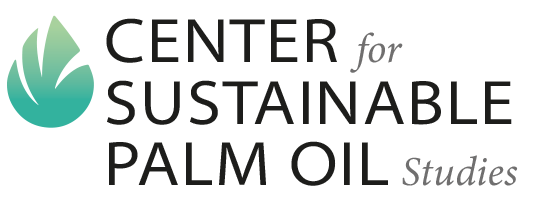
- One third of global deforestation is linked to international trade, and the European Union plus the UK are estimated to account for 16% of global trade-related deforestation.
- A recent European Commission proposal would require companies to ensure that commodities placed on the European market are not linked to a territory that has been deforested after December 31, 2020.
- A senior scientist at CIRAD argues that as worded, the proposal could punish some countries unfairly while ignoring other useful certification schemes that protect forests.
- This article is a commentary. The views expressed are those of the author, not necessarily of Mongabay.
The European Commission’s plan to counter deforestation associated with certain imported agricultural products was unveiled on November 17, 2021. One third of global deforestation is linked to international trade, and the European Union (plus the UK) is estimated to have an annual “footprint” of about 200,000 hectares, or 16% of global trade-related deforestation.
The Commission’s proposal provides that before placing a product on the European market, each company must ensure that it is not linked to a territory that has been deforested after December 31, 2020, by geolocating the parcels from which it comes and by setting up a traceability system. The products concerned are palm oil, soy, cocoa, coffee, beef and wood. Surprisingly, natural rubber from rubber trees is not included, even though it is one of the drivers of deforestation, although not the most important one.
The cornerstone of this project is the “due diligence” obligation imposed on importers, i.e. the set of verifications that they must carry out to ensure the origin of the product to be imported, its legality, and the conditions of its production, thus reducing the risk of marketing products involved in deforestation.
A broad “amnesty” for recent deforestation
One of the main elements of this draft regulation is the mention of a “cut-off date” on deforestation set at 12/31/2020. In practical terms, this means that if the conversion of forest has taken place before this date, these are not considered to be involved in deforestation. The date of the end of 2020 is more than a compromise, it is the upper bound of a range mentioned by the European Commission (“between 2015 and 2020”) a few months ago.
The European Parliament had voted in 2020 on a resolution stating that the date of January 1st, 2015 had to be retained. The date proposed by the Commission is clearly a gesture to the importing industry (and the producing countries) who were asking for the adoption of a close-to-present date. And it “amnesties” a lot of recent deforestation in large producing countries, such as Brazil, while low deforestation countries like Gabon that may want to develop their agriculture by clearing forest now will probably note that they are more penalized.
The thorny issue of legal deforestation
The other important point is the adoption of the FAO’s definition of forests, i.e. 10% tree cover (without oil palms, for example) on a minimum area of 0.5 hectares. However, many countries have adopted a minimum threshold of 30% tree cover to define forests, i.e., a narrower definition of forest. By setting a threshold of 10% to define zero deforestation products, commodities considered legal in the country of origin (whose conversion may have involved an ecosystem with, for example, 20% cover) will be unacceptable to the EU, and, in principle, will not be allowed to be imported. This will create strong trade tensions and possible retaliatory measures (one can think of Airbus sales).
The idea of having only one definition of forest for all countries (i.e., the same for Gabon, a country of dense forests, and Burkina Faso, a country of dry and open forests) and all biomes, poses a problem of realism. It would be more appropriate to examine things on a case-by-case basis, and even biome by biome, since some countries have several forest biomes. To move in this direction, it would undoubtedly be better for the EU to rely on independent certifications such as the Rainforest Alliance for cocoa, or the Round Table for Sustainable Palm Oil (RSPO) for oil palm, which have recently adopted “zero deforestation” criteria.
On the other hand, adopting a single threshold of 10% tree cover to define forest risks letting the conversion of many parts of wooded savannas, such as the Brazilian Cerrado, into soybean fields. Indeed, these savannas rich in biodiversity and with high amounts of carbon in their soils are often below the 10% tree cover threshold. The European Commission announces that it will probably consider extending its regulation to other natural ecosystems in a second phase. It should be noted, however, that adopting a general measure of “no conversion of natural ecosystems” (which would essentially aim to protect the Cerrado) would run counter to the guidelines proposed by the Central African Forest Initiative (CAFI), a coalition of donors of which the European Commission is a stakeholder, to ensure that large-scale cultivation (of oil palm in particular) is developed in savannas (and thus natural ecosystems such as the Cerrado).
While in Brazil there are huge areas of degraded and abandoned pastureland that could be rehabilitated for new crops or plantations, this is practically not the case in the Congo Basin. Taking the context into account will therefore be crucial to making relevant decisions and avoiding perverse effects. While it seems difficult for a bureaucratic machine such as the Commission to be able to take into account the context in a detailed manner, it is reasonable to think that independent certifications that meet the precise specifications of the public authority will do so.
Tropical wood imports threatened
For tropical timber, a rather unexpected threat appears with the mention of forest “degradation” in addition to deforestation. This consideration of degradation seems to be the result of listening to lobbies against logging. The definition of degradation is rather unclear: the European draft states that degradation means logging operations “that are not sustainable,” while the next paragraph states that sustainable logging means no degradation (of primary forests). This sounds like a circular reference.
By Alain Karsenty
Original link: https://news.mongabay.com/2022/02/is-a-european-proposal-on-imported-deforestation-too-punitive-commentary/


